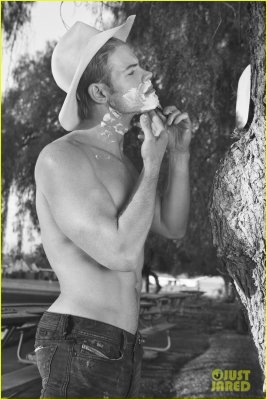
The Gambler's Apprentice
H. Lee Barnes
(University of Nevada Press)

They say that Ronald Reagan's favorite reading matter came from the pen of Louis L'Amour --- Heller with a Gun, The Trail to Seven Pines, The Rustlers of West Fork, Guns of the Timberlands. This should have been enough to disabuse the rest of us of ever picking up a shoot-'em-up rustlers and cowpoke book ever again, so I looked in on The Gambler's Apprentice with some disdain. My rule has always been that if I have to choose between cowboys and indians, I'll come down on the side of the indians each time.But after a few pages of The Gambler's Apprentice, even without any indians, I was hard put to let it go, and by the time Willie Bobbins --- all of sixteen-years-old --- had given up sneaking cattle from over the Mexican border and gotten into playing Hold 'Em, he was so hot that I was ready to be dealt in the game as well.
For Barnes knows the west, and cow-punchers, and stealing cattle and getting shot at --- and he knows how to get the reader involved, even if it is only in robbing hosses and card-sharking and occasionally getting beat up and engaging in the endless often funny palaver of those who aren't much into words,
Willy watched the cockroach crawl down the wall. The roach meandered in Willy's direction. He rose out of his seat and smacked it.
"Drought or otherwise, one thing Texas's got for certain is cockroaches. Comes in six legs and two." Fellows opened a drawer, uncapped a bottle, drank from it and passed it to Willy.
"We still a dry county, Sheriff?"
"Yep. No one would dare violate it either."
Willy saluted his soon-to-be brother-in-law, took a swallow, and set the bottle between them on the desk . . . .
"Two thousand." The sheriff whistled again softly and sucked on his pipe, which had gone dead. He lit a match on his trousers. "What you and Beau been up to? Cattle bidness?"
"Cards, Sheriff."
"I told you before to call me Glen. You should, seein as how we're family." Fellows relit his pipe and leaned back.
"Must be damn good at cards, Willy."
"There's a lot who ain't. Some's even worse 'an Clay" [his father].
Fellows smiled. "If he was a terrible player, it'd be an improvement."
"A fact. How's the rest of the family?"
"Gettin' by. Ten months of some rain. Seems the damn drought's over, least for now. Your sisters worked, and your ma's garden been feedin 'em . . . Your pa's got a still somewheres. 'At's some'a his poison we drank. Sit, we'll have another."
Willy shook his head and took out his bankroll. "The money, Glen. I mean it for them . . . ."
Willy peeled off a hundred-dollar bill and laid it atop the desk.
"You growin' green now?" The sheriff picked it up, snapped the edge of it, and sniffed it. "Fresh outta some garden"
"Weddin present," Willy smiled and walked to the door. "You'll make Nell a good husband. Get somethin nice for her with that. I'd 'preciate you not sayin I have been 'round."
Great. Dialogue out of the old school, as good as L'Amour, maybe even better. He was good at pushing the action, too, as good as Barnes. In forty-nine chapters, Willy gets rolled, shot at, beat up, chased, near drowned, almost steals another man's wife, damn near killed. He is obviously built like those James Bond characters, near indestructible, but somehow more interesting.
And can he deal. A guy named Sonny showed him how to play cards, move them around unseen to the top or the bottom of the deck. Sonny also taught him the philosophy of the gambler who must survive the implicit violence of the gaming table. He "spoke tirelessly of the green-felt table as 'the ether of human existence,'"
each hand bringing hope or despair, reward or rejection, failure or triumph. He sometimes added to those joy and depravity.
Willy? He saw it as a business, nothing more, "the best hand or bluff winning the pot. Money was the proof of his opinion. Take that away and cards were a waste of time. A man could better spend his earned money in some other enterprise." And we are right there, the particular smell of the room, the tension, the men, "their clothing, their habits, their vocations --- leather and sweat, cigar and pipe smoke, beer and whiskey, and the dirt-and-oil odor that lingers on those who do hard labor."
The men here --- this is a man's world of 1917 the American wild west --- are all constructed out of that cliché, but there is something else going that saves this novel, makes one press on, not willing to give up on Willy. He, an illiterate card-shark, who always sizes up the room that he enters, the better to get out before being shot up. It is the tension that drives this bildingsroman, surviving gunshot and incipient hangings and brawls and disease --- it is the time of the Great Flu Epidemic --- that keep us going, because the writer knows how to parse it out, parse us out, so that we don't want it to end.